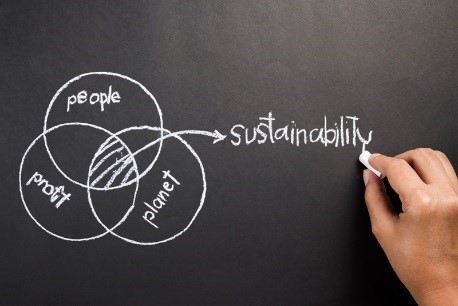Sustainability and zero-waste have become popular trends, as more consumers are starting to change their purchasing habits based on companies’ environmental contributions. From corporate social responsibility reports to declarations of sustainability initiatives, organizations of all sizes across the world are implementing solutions to eliminate waste, mitigate emissions, and protect the environment.
According to a Grocery Manufacturers Association funded study, only 13 percent of shoppers do not consider sustainability when purchasing products or choosing services. This means that the environment is top-of-mind for consumers! Regardless of the industry, consumers want goods that are made by organizations with a commitment to protecting the environment in some form or another. Additionally, the study found that once a consumer makes the switch to products produced by sustainable-responsible companies, they are more likely to remain loyal customers.
If an overwhelming majority of consumers only want to purchase from socially responsible organizations, the same can be said for clients seeking partners in a variety of industries. The bottom line is that sustainability and zero-waste initiatives are not only good for the environment, but they also can impact revenue.
While small measures such as donations and corporate policies are crucial in the fight to protect the globe, strategic reverse supply chain management provides a significant impact on revenue and the environment through sustainable and zero-waste initiatives. This means that it is of the utmost importance to work with a trusted asset management partner when disposing of surplus assets.

To achieve zero waste, organizations will need to implement new practices and use asset management tools.
Zero Waste
Manufacturers and retailers might fulfill different roles in the supply chain, but when working with the reverse supply chain, both must undertake specific initiatives to ensure that surplus assets do not end up in landfills.
Currently, electronic waste is becoming a chief concern of environmental scientists. In a recent Wired article, the source cited a Markets and Markets report that determined 70 to 80 percent of all old computers, smartphones, tablets and gadgets of all varieties head directly to landfills. This will only increase as more consumers and employees clamor for the latest and greatest hardware as soon as it is released.
Both manufacturers and retailers are often faced with a large surplus of parts and pre-owned electronics from discontinued lines of PCs and smartphones. These electronics cannot – and should not – be directed to landfills, as lithium batteries pose a hazard to water sources and metal can be repurposed for other products. The best solution is to work with a trusted asset management partner with experience in disposing of surplus electronics and with an R2-certified facility to ensure the highest credibility of environmental stewardship.
There are two ways to deter waste from landfills in the reverse supply: reselling assets or reusing the resources. Liquidity Services has experience in both of those aspects of sustainability. In one case, the asset management organization provided the expertise and software necessary to extend the life of computers and keep them out of landfills. Using a newly restructured program designed by Liquidity Services, a PC manufacturer could process returned units more quickly, doubling production and increasing the number of items accounted for by 79. The result was that over 1,780 electronics were deterred from landfills and either completely reused or redistributed.

Sustainability requires a well-run reverse supply chain.
Sustainability
While repurposing and disposing of surplus assets in an environmentally friendly manner is important for some industries, other markets can implement new reverse supply chain strategies to positively change their impact on the environment on a regular basis. Many organizations rely on trucking to deliver products around the country, as well as return surplus assets to their vendors.
According to the Environmental Protection Agency, heavy-duty vehicles running on gasoline emit 13.13 grams of carbon dioxide, 2.9 grams of nitrogen oxide, 1.59 grams of hydrocarbons such as methane and 1.6 grams of volatile organic compounds per mile of travel. Additionally, on average, every semi-truck averages around 30,000 miles on an annual basis. By cutting down even slightly on the need to travel, retailers, manufacturers and any other organization can drastically reduce the negative effects on the environment.
Liquidity Services can help minimize environmental impact related to transportation and logistics with improved return to vendor policies and procedures. When working with a top-tier wholesale retailer, the asset management partner implemented a new revenue share structure in order to help the retailer achieve optimal recovery. The partnership found the ideal method for handling inventory spikes and restocking processes. Freight costs were reduced by $200,000 annually, and the environment was saved from heavy-duty vehicle emissions. The retailer mitigated spending as well as met sustainability goals.
There are many ways that asset management partners can reduce waste and assist businesses as they strive to meet sustainability goals and comply with EPA regulations. Any industry can benefit from the partnership, and with the perfect strategy, an organization can become a trendsetter in regard to corporate social responsibility.



Comments are closed.